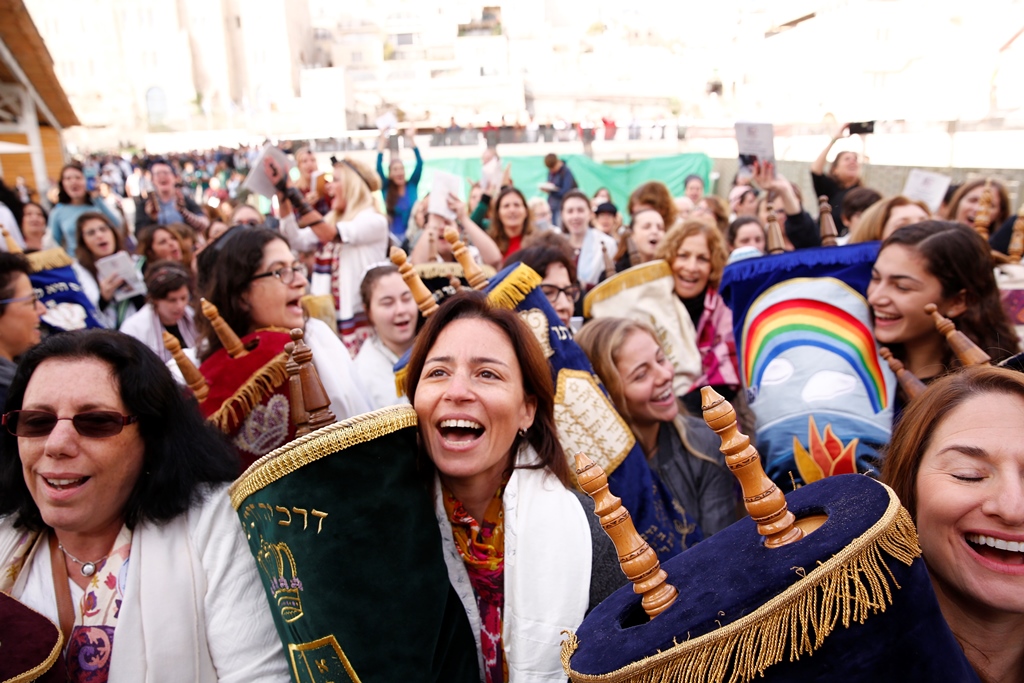That Israel is the only western country where Jews aren’t permitted full expression of their religion is a paradox, says Yizhar Hess, a lawyer and the CEO of Masorti, Israel’s Conservative movement.
Hess was in Toronto last month and spoke at Beth Tzedec Congregation about Israel’s ongoing interdenominational Jewish struggle over access to pluralistic prayer at the Kotel.
Earlier in November, rabbis and others affiliated with Masorti joined forces with hundreds of Jews involved with liberal and progressive groups such as Israel’s Reform movement and the feminist prayer group Women of the Wall (WoW) to protest the Israeli government’s failure to implement an agreement to establish an egalitarian prayer section at the Western Wall.
The demonstration involved going through security barriers to march at the Kotel with Torah scrolls and holding a prayer service with men and women.
The protest was organized by Masorti, the Reform movement and WoW.
Last January, the cabinet signed a historic promise to establish a pluralistic prayer section in the area of the Wall known as Robinson’s Arch.
As it stands, men and women are not permitted to worship together at the Kotel, and women aren’t allowed to handle a Torah scroll.
“We’re joining forces for things we all care about,” Hess said, explaining that WoW’s objective is to have a women’s minyan at the Kotel, while Masorti wants a space at the Kotel for men and women to daven together.
“We’re looking for peace, not a battle, but if [the government] continues to not implement the agreement, we’ll fight it both in court and with our legs on the ground,” Hess said.
At a High Court hearing in September, Israel’s Supreme Court president and two justices rebuked the government for failing to implement the agreement.
“The decision was supposed to be implemented a month after [the agreement was signed]. Some haredi parties backed off the agreement, and the government didn’t have the guts or leadership to [go through with it],” Hess said, noting that Masorti is engaged in ongoing conversation with the government, but he had no progress to report.
“We’re protesting… to show it’s wrong to not respect agreements. It’s a historic mistake not to find a way to unite Jewish people around Jerusalem and a strategic mistake by the government of Israel to alienate world Jewry from the capital of the Jewish state,” Hess added.
At Beth Tzedec, he gave a dvar Torah that drew parallels between that week’s Torah portion, the events of which took place at the site of the Temple on Har Hamoriah, and the current dispute over pluralism at the Kotel, which he referred to as “the heart and soul of Jews all over the world.”
In the talk, Hess said, he “tried to encourage people not to lose hope… and to remind them that freedom is not given, it’s always won. Sometimes you need to fight for it. This is, of course, a fight inside the mishpachah, not outside the family, but it’s a fight for democracy in Israel.”
While just seven per cent of Jews in Israel identify as Conservative or Reform, Hess said this “is not an insignificant minority.” Further, he said it must be noted that most Jews worldwide “pray without a mechitzah,” men and women together, and that the diversity of expressions of Judaism around the world must be respected.
“For the love of Israel, we must do this. We must work together to broaden the Jewish spectrum that is considered legitimate in the State of Israel,” he said.
